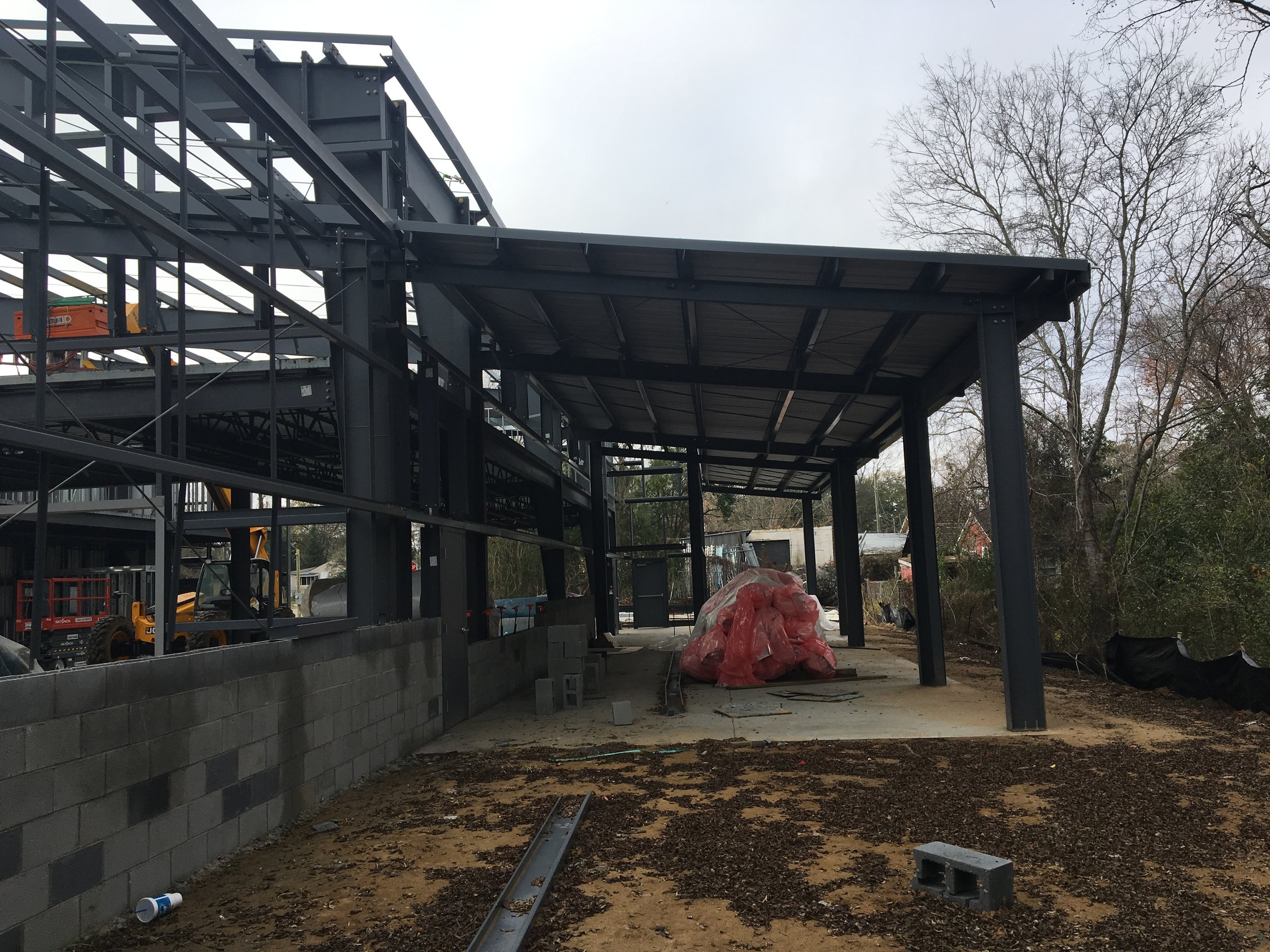When we started this project almost 4 years ago, we had no idea it would take us this long to get here, but we did know that we wanted to put our heart and souls into this project. Bill has looked at plans and created custom doors for twenty years, we have renovated two homes, but this is our first building built from the ground up.
Our initial thanks goes to the Nelson and Washington familes, Pastor Hicks and Mount Nebo Church of the Living Christ, and the City of North Charleston. Without their belief in this project, nothing would have happened.
Thank you to Bruce Berlinsky and his legal secretary Betsy Scott with the Berklinsky Law Firm for helping us close the purchase of the land and our loan with SC Community Loan Fund (huge shoutout to SC Community Loan Fund, their faith in our project, and willingness to work with newbie developers).
For the building, we started by working with Christopher Liberatos and Jenny Bevan of Bevan & Liberatos, who helped us envision how we could build an open floor plan with human proportions. Architect John Crouch of Oceana Design LLC used his experience with metal buildings and turned our ideas into a flexible space which can accomodate the workspace needs for Bill's Custom Woodworking and Carolina Cabinetry & Millwork along with a second floor space for craftspeople, artisans, and tinkerers. Matt Cline with Cline Engineering made certain our site plan was compliant with local regulations and designed to accomdate two buildings, parking, and storm water. Larry Kennerty with Kennerty Surveying helped us through all of the surveying necessary for rezoning, replatting, and siting the building.

















